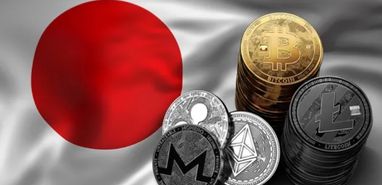
In a groundbreaking move, Hokkoku, a notable Japanese regional bank, has spearheaded the launch of ‘Tochika‘, the nation’s inaugural stablecoin underpinned by bank deposits. This innovative step is stirring discussions among cryptocurrency aficionados in Japan, sparking debates over its potential benefits and drawbacks, alongside the stablecoin’s practical utility.
Unveiling ‘Tochika’: A Leap Towards Digital Currency
The inception of the Tochika stablecoin stems from the triumphant rollout of the Tochituka app, a collaborative effort with the Suzu City government last year. This app empowers citizens to accrue and expend Tochipo points at designated local establishments. Furthermore, Hokkoku bank’s existing clientele can now amplify their financial flexibility by converting their bank deposits into Tochika stablecoins through the app.
Characterized by its deposit-backed security, the Tochika stablecoin promises to streamline transactions at affiliated outlets, marking a significant shift in a dominantly cash-oriented Japanese market. Hokkoku’s strategic vision includes enticing retail entities with an enticingly low merchant fee of 0.5% for transactions executed via the app. The bank is also navigating a transition for paper gift voucher issuers towards a digitized, point-based transaction system facilitated through this app.
Future Horizons: Expanding Tochika’s Ecosystem
With an eye on the future, Hokkoku Bank is gearing up to integrate peer-to-peer payment functionalities into the app by year’s end. The bank’s aspiration extends to enlisting additional banks within the Ishikawa prefecture into its pioneering initiative, with hopes of broader regional expansion subsequently.
The technological backbone of this avant-garde platform is crafted by Digital Platformer, leveraging the reputed Hyperledger Iroha, attributed to Soramitsu, a Japanese tech entity. Hokkoku’s foray into retail-centric, deposit-backed stablecoins sets it apart in a global arena of banking institutions exploring stablecoin ventures.
Concurrently, Japan’s regulatory framework for cryptocurrencies is adapting, with recent legislation accommodating three categories of stablecoins, including those bank-backed. This legislative environment fosters trust-based stablecoins, as demonstrated by MUFG’s Progmat Coin platform, enabling the issuance of stablecoins supported by an array of trust banks. Notably, another significant Japanese endeavor is the impending launch of the DCJPY, a deposit token initiative, slated for this quarter.








By Andrej Kovacevic
Updated on 14th July 2024